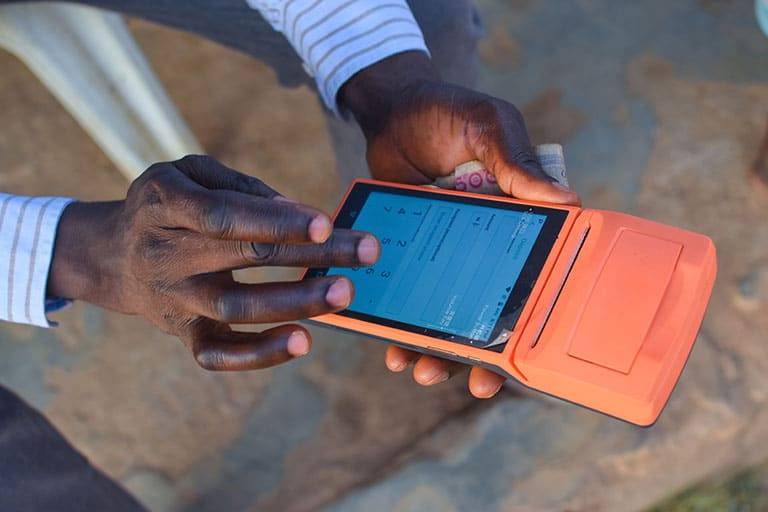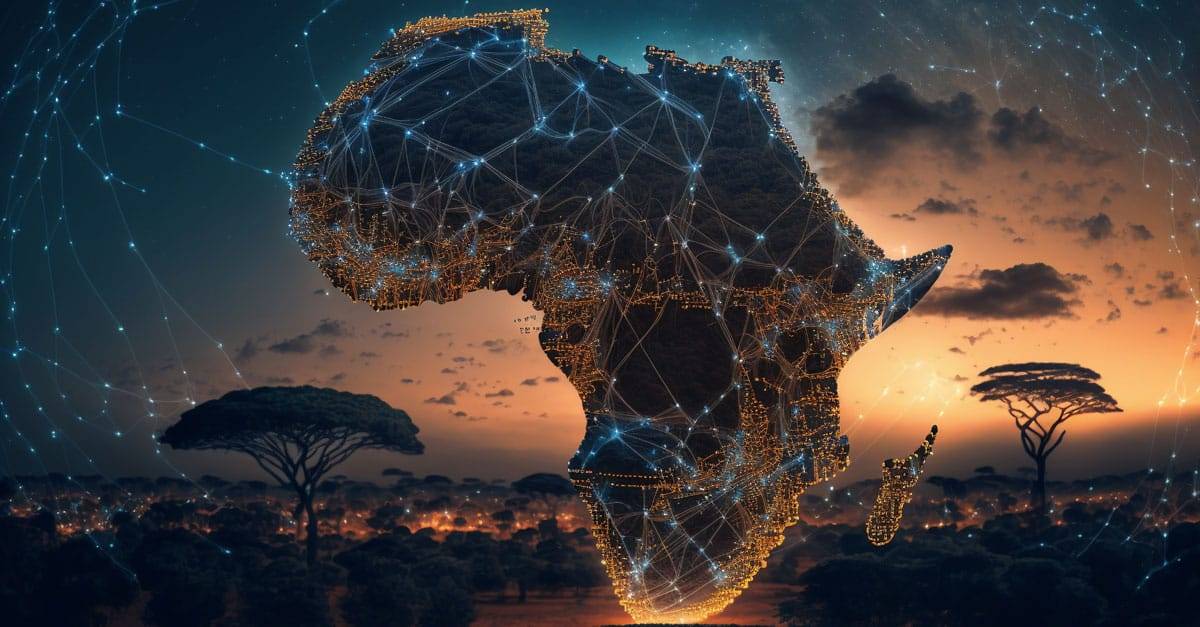New players are on the way
Africans are moving up the “financial services value chain” as a result of innovation. Customers in Sub-Saharan Africa may now use mobile payments to access mobile banking and other services such as creating savings accounts, obtaining loans, purchasing insurance, and investing in stocks or government securities. They can even use electricity first and then pay for it afterwards. The world’s second-largest continent is already the most advanced in terms of mobile money transfer services.
Ghana’s MoMo and Kenya’s Safaricom with Mpesa are major participants in this financial revolution, but so is Bizao, which began in 2009 and has already struck over 30 agreements with telecom carriers, banks, and mobile money operators across Africa.
“Mobile” money has the ability to help Africa develop
Fintech innovation is accelerating, mostly in local hubs such as Nigeria, Kenya, and South Africa. New technologies are being adopted across the continent, and they have the potential to assist Africa significantly. Foreign investors have boosted their support for African fintech startups in acknowledgment of this, as these companies build solutions adapted to the region, for example, to accommodate for the region’s significantly slower internet connection in some regions. Because of the dropping cost of telephones, the area is projected to profit from internet-based solutions.
According to the IMF, Sub-Saharan Africa is the world’s only area where mobile money transactions account for close to 10% of GDP. In comparison, other areas’ GDP is less than 2%, while Asia’s GDP is just 7%. According to Mckinsey, African fintech revenues might more than quadruple by 2025, and Brookings research suggests that mobile money services have a lot of space to grow given the region’s low penetration of cellular and internet networks, particularly in rural Africa. The success of Africa’s fastest-growing industry, fintech, is being driven by a variety of factors, including an increasingly urbanising, young, and quickly rising population, as well as women altering the game. Take, for example, ladies. Because of their lack of access to conventional bank accounts and male-dominated networks, they are frequently relegated to informal markets and benefit from decentralised financial choices.
Your Wealth, Our Priority: Altoo's Consolidation Power, Secure Document Management, and Seamless Stakeholder Sharing for High Net Worth Individuals. Preview Platform.
Despite the fact that decentralised finance is still in its infancy, it has the potential to create a new business within the local financial ecosystem. There are early signs of new-generation collaborations, such as brokering agreements, in which platform users are given goods in the insurance, digital wallets, savings, or credit sectors.

High transaction volumes in cryptocurrency
In addition, the usage of decentralised financing is crucial in the bitcoin market. After bitcoin, Ethereum is the second-most traded cryptocurrency in Africa, while stablecoins like USDT and USDC have seen a significant surge in trading as a result of inflation and international commerce. Furthermore, according to local media sources, a 1,200 percent surge in crypto value was accounted for in Africa alone in 2021. According to Chainalysis Insights, Africa has the highest transaction volume of peer-to-peer (p2p) payment networks across all geographies. In the last six months, approximately 70 million Nigerians have swapped cryptocurrency.
Uneven spread of fintech solutions across the continent
The African continent’s difficulty is and will continue to be how it leverages success in mobile money. As the continent’s population doubles by 2050, the local ecosystem must shift to other fintech services, increase digital inclusion and innovation, and employ high-quality personal capital.
A World Bank study suggests that Africa will be well positioned to address its fintech and digital issues if the appropriate policies are in place. However, officials must first repair the infrastructure, particularly the energy and poor internet connections. In this regard, the continent must strike a balance between rapid innovation and a slower rate of regulation.
According to McKinsey, development in financial services would be uneven “across Africa’s 54 countries.” While South Africa has the most established banking system on the continent and presently holds the largest market share (about 40% of revenues), Ghana and francophone West Africa are predicted to expand the quickest, at 15% and 13% per year, respectively, through 2025. Nigeria and Egypt will follow, each with a 12% annual growth rate during the same time. According to this global consulting firm, the growth opportunity in fintech is “likely to be concentrated in 11 key markets: Cameroon, Côte d’Ivoire, Egypt, Ghana, Kenya, Morocco, Nigeria, Senegal, South Africa, Tanzania, and Uganda, which together account for 70% of Africa’s GDP and half of its population.” (Source: McKinsey, Fintech in Africa: The End of the Beginning)









